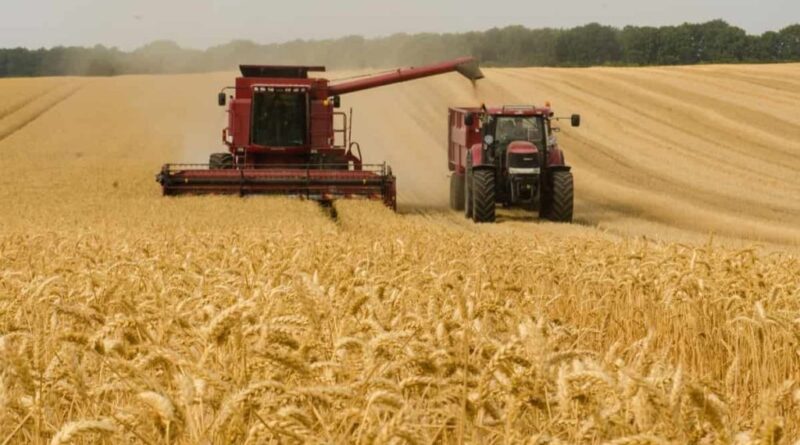Is ‘grain-surplus’ India considering importing wheat from Russia
By Vibha Sharma
The retail price inflation in India jumped to 7.44% in July, according to the government data.
Food inflation surged to 11.51%, the highest since January 2020, driven by vegetables (37.3%), spices (21.6%), cereals (13%), pulses (13.3%) and milk (8.3%).
Export curbs
According to officials and production statistics, there is “no shortage”, rather India has “surplus” due to “bumper” crops.
However, India has tightened exports of the two grains.
In fact, ban on the export of wheat imposed last year was not lifted despite “record” production this year. Rather, in June, stock limits were also imposed on it.
India’s total food grain production is estimated at a record 330.5 million tonnes (MT), as per the Third Advance Estimate issued by the Centre in May. The figure is higher by almost 15 MT compared to 2021-22.
The country’s overall wheat production surpassed the target of 112 MT for the current year, notwithstanding erratic rains during the harvesting period, official said.
Wheat production is higher by 5 MT as compared to the previous year while rice during 2022-23 is estimated at 135.5 MT, higher by 6 MT compared to previous year.
India is a major player in the global trade of rice.
However, amid rising domestic prices, fears of a shortfall and surging global prices, the government prohibited exports of all white (non-parboiled) non-basmati rice in July.
According to reports, the export of rice and wheat aggregated 19.8 MT in 2020-21, 28.4 MT in 2021-22 and 27 MT in 2022-23 compared to 12.9 MT (2017-18), 12.1 MT (2018-19) and 9.7 MT (2019-20).
Experts say export curbs and stockholding limits are generally imposed for improving domestic availability and preventing hoarding and unscrupulous speculation during the times there is a shortage.
Is India importing wheat
Reports also suggest that India may be considering importing wheat, something that India has not had to do for many years.
Quoting “four sources”, news agency Reuters reported last month that “India is in talks with Russia to import wheat at a discount to surging global prices in a rare move to boost supplies and curb food inflation ahead of state and national elections next year”.
Observers say the move, of which there is no official confirmation so far, may be aimed at curtailing inflation in run-up to elections to key states this year followed by the general election in 2024.
Imports will allow the government to “intervene more effectively in the market to drive down wheat prices that stoked inflation to a 15-month high in July”, they add.
“The imports would be facilitated through both private trade and government-to-government agreements, cautiously decided upon by the government, the report also added.
The fact is India has not imported wheat through diplomatic deals in years.
The last time a significant amount of wheat was imported was in 2017 by private traders, according to reports.
Though senior officials have denied any such proposal of importing wheat, the report attributed “private nature of the discussions”, and the fact that decision may still be “some weeks away” as reasons.
Inflation, a sensitive issue
The fact is food inflation is an issue that the Narendra Modi government would like to wish away in the crucial year before the country votes to elect the next government.
Reducing the price of LPG was one such step in the direction to control inflation.
A series of important state elections that will set the mood for 2024 are also slated later this year and the issue pertaining to retail price of rice and wheat is a cause of concern for the ruling party in the country where the two grains form essential part of the meals of common people.
The country has sufficient stock for its 1.4 billion people but vagaries of the 2023 monsoon have added to the apprehensions of damage to the crop.
There have been unprecedented heavy rains and floods in key growing regions Punjab and Haryana and deficiency in several other parts of the country.
No wonder the planners are cautious.
This article has been republished from The Tribune

